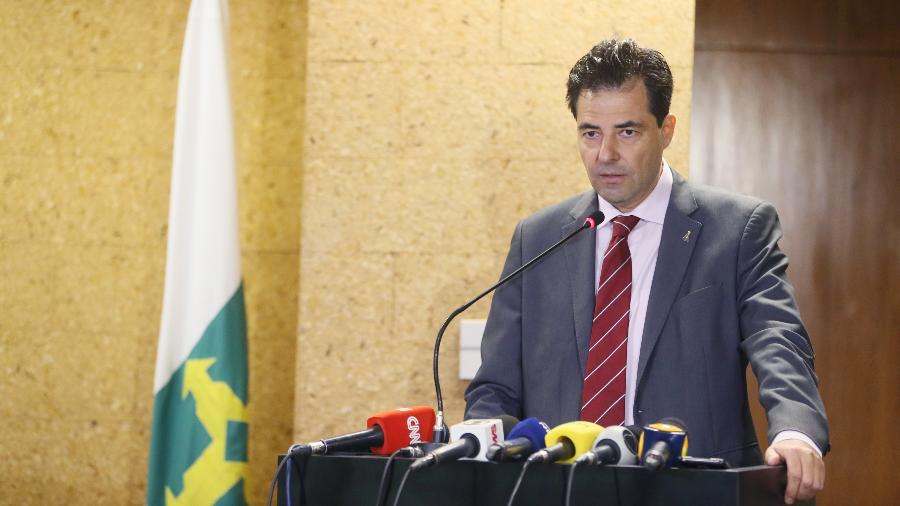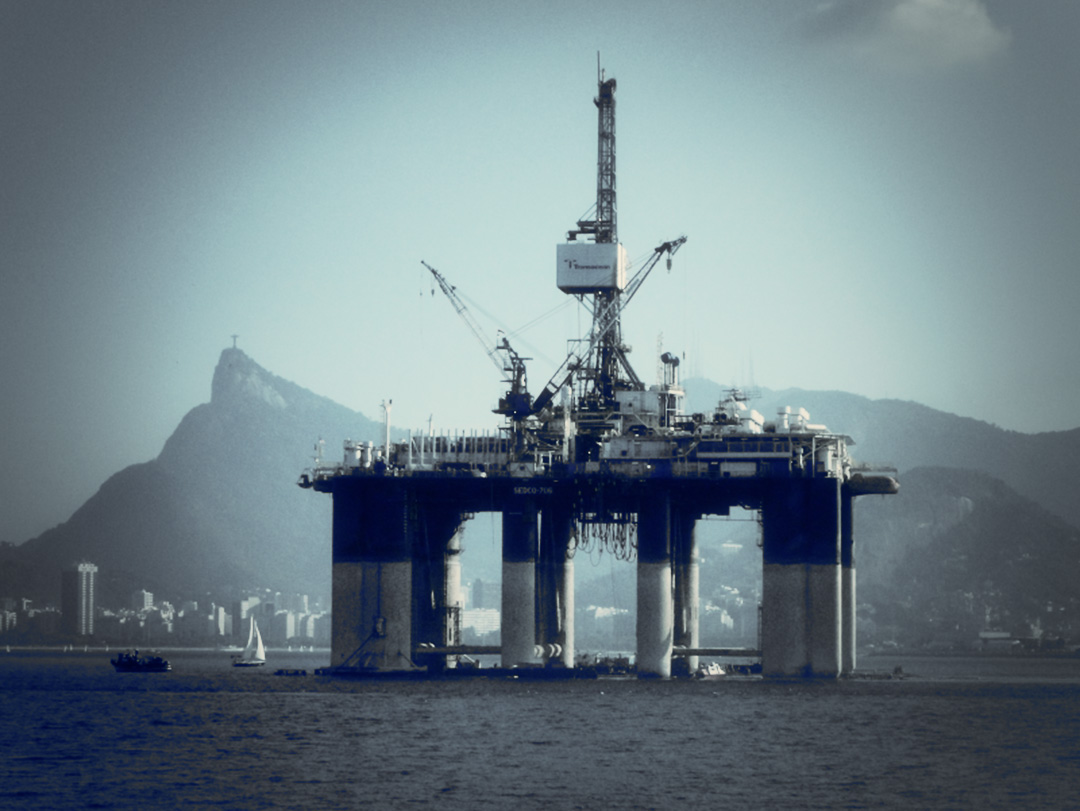With his re-election looking unlikely, Jair Bolsonaro now tries to unify international capital and supporters of the 2016 coup around his candidacy with a final throw of the dice: a fast-track privatisation of Petrobras and delivery of Brazil’s massive oil wealth to the foreign corporations which originally backed his presidency. Bolsonaro’s new Mines and Energy Minister Adolfo Sachsida says privatisation is his priority, as Lula vows to halt any sell-off after the election.
Incoming Minister of Mines and Energy, Adolfo Sachsida has announced that he will work towards the privatisation of both state controlled oil and gas company Petrobras and Pre-Sal Petróleo SA, the entity responsible for managing the Brazil’s pre-sal (subsalt) exploration contracts.
The first of Brazil’s pre-sal offshore oil deposits were discovered by the state oil company in 2006 during Lula’s first presidential term and were once called Brazil’s “passport to the future”, earmarked by Dilma Rousseff for investment in public education and health. The discoveries doubled Brazil’s proven oil reserves, with the company developing its own proprietary deep drilling technology to make the oil’s extraction cost effective.
Since the pre-sal’s discovery, the destiny of Petrobras has been interwoven with Brazil’s democratic collapse, and the United States‘s role in it. One of the first acts of the interim government of Michel Temer following Rousseff’s removal in 2016 was to break the so called “pre-sal law” which was designed to protect the sovereignty of the pre-sal by guaranteeing Petrobras involvement in all exploitation of the oil and gas fields. Following the discovery, the Bush administration drew Brazilian anger by re-inaugurating its fourth fleet, its first specific Naval force to cover the South Atlantic since the 1940s. In 2008 Lula himself warned that the fleet could be a signal that the United States covets Brazil’s new oil wealth. Two years later leaked cables showed that breaking the pre-sal law was a long term objective of the US State Department, working in tandem with international petroleum interests, as represented by lobby Council of the Americas – home to Chevron and ExxonMobil. The strategy was to secure partners in Brazil’s senate who would support US objectives. Petrobras and the Ministry of Mines and Energy were the principal targets of US National Security Agency spying on Brazil exposed in 2013, and the oil giant was then primary target of US-Brazil anticorruption operation Lava Jato. Lava Jato worked to bring down Dilma Rousseff, and jailed 2018 election frontrunner Lula, opening the door to the Bolsonaro presidency. Petrobras has been severely damaged and asset stripped since the now disgraced operation began in 2014. In addition US funded groups campaigning for the removal of Dilma Rousseff made privatising Petrobras – ostensibly to “stop corruption” – a centrepiece of their platform.
Fast-track privatisation
Minister of the Economy Paulo Guedes right-hand man, and apparent admirer of deceased Richmond, Virginia-based far right philosopher Olavo de Carvalho, Sachsida worked on the economic programme for Bolsonaro’s 2018 campaign, which came with the blessing of international capital.
Sachsida has recently attacked Brazil’s biggest trading partner, China, as “shit”, and stated that Chilean fascist dictator Augusto Pinochet, who implemented one of the most radical ultraliberal economic programmes in history, was “on the left”. Sachsida has also said that “women are more efficient outside the market”.
Upon his appointment the minister announced that the final privatisation of Petrobras, one of Brazil’s economic engines and a symbol of its sovereignty, created by then president Getulio Vargas in the 1950s, will be his first act as minister. He vowed to set studies in motion immediately on how to achieve full privatisation of the state controlled mixed capital company as quickly as possible.
“My first act as a minister will be to ask [Economy] Minister Paulo Guedes, chairman of the PPI [Investment Partnerships Program] Council, to take to the council the inclusion of PPSA in the PND [National Privatisation Program] to evaluate the alternatives for its privatisation,” said Sachsida.
“As part of my first act, I will also request the beginning of studies aimed at proposing the legislative changes necessary for the privatisation of Petrobras”, he added.
Brazil’s oil is arguably the biggest strategic asset the country has, especially given increasing uncertainty over world supply from Russia. A day before Sachsida’s announcement Reuters reported that the United States had asked Brazil in March to increase its crude oil output to curb soaring prices amid international sanctions against Russia, but Brazil refused.
“We are … doing everything possible with our allies and partners to mitigate the economic impacts of Russian actions on other economies like Brazil,” a State Department spokesperson told Reuters. “We are working with energy companies to surge their capacity to supply energy to the market, particularly as prices increase.”
Yet Petrobras denied any meeting with the State Department. “It did not respond to a request for comment when asked if it had been contacted by any other U.S. government agency.” Reuters clarified.
Three weeks prior to Sachsida’s announcement, a US delegation led by Under Secretary of State for political affairs Victoria Nuland, visited Brazil for “High-level dialogue” with the Bolsonaro government. Also present on the delegation were Under Secretary for Economic Growth, Energy, and the Environment Jose Fernández, Principal Deputy Assistant Secretary of State for Western Hemisphere Affairs Ricardo Zúniga, Deputy Assistant Secretary of State for Western Hemisphere Affairs Mark Wells, and Deputy Assistant Secretary of State for Energy Transformation Anna Shpitsberg.
It is unclear if Petrobras privatisation was on the agenda.
On his first day as Minister of Mines and Energy, Sachsida, proposed that Brazil “move away” from its key BRICS partners China and Russia, and closer to “friendly democracies”, and that one of his goals was to promote a “global realignment of investments”. China is currently Brazil’s largest trading partner and Russia is also important since it is the origin of most fertilizer needed for Brazilian agribusiness.

Adolfo Sachsida
Adolfo Sachsida also indicated that he intends to privatise state energy firm Eletrobrás. A project that has already been widely condemned, even denounced by former President Lula in recent speeches as treasonous.
In his speech to launch the “Vamos Juntos pelo Brasil” coalition behind his presidential candidacy, Lula remarked: “Eletrobras was built over decades, with the sweat and intelligence of generations of Brazilians. But the current government does everything to sell it off it at a bargain price. The result of this crime against the homeland would be the loss of our energy sovereignty. Defending our sovereignty is also defending Eletrobrás from those who want Brazil to be eternally submissive”.
Journalist Leonardo Attuch, editor of Brasil 247, said that the privatisation of state-owned companies is “Bolsonaro’s last gambit to unify capital and all the coup plotters of 2016 around his candidacy.”
At a rally in Juiz de Fora on the day of Sachsida’s announcement as Minister of Mines and Energy, Lula denounced the privatisation of Brazilian public companies: “I want to take advantage of the humanism that reigns in this room, the democratic warmth in this room, and say to the government and to businessmen: stop privatising public companies”.
In a signal that an incoming Workers Party-led government intends to reverse such privatisations, Lula insisted “Whoever tries to buy Petrobras will have to talk to us after the election. Stop trying to privatise Eletrobras. Stop privatising Correios, Banco do Brasil, Caixa Econômica, BNDES, BnB. Learn to work, invest and make economic policy instead of selling things that are already made”.
Lula is maintaining a double figure lead over Bolsonaro in polls for the October election, whose pre-campaign has begun under a shadow of an antidemocratic threat from the far right president and his military backers.
[qpp]

